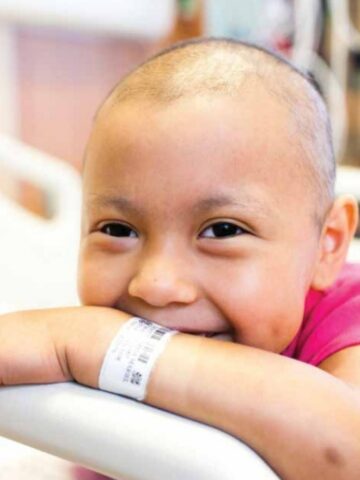A CHOC Hospital study could determine how many patient-facing clinicians and staff in its emergency department have COVID-19 fighting antibodies, easing concerns of asymptomatic carriers exposing others to the virus in an acute care setting.
Using rapid serological testing, the monthlong study will determine the prevalence of viral exposure and incidence of new exposure among staff at the Julia and George Argyros Emergency Department at CHOC Hospital.
Serological blood testing looks for antibodies developed by the body to fight infection. Antibodies indicate the likelihood of past or recent infection or exposure. While researchers are still learning about COVID-19, it is also possible those who have been exposed to the virus and recovered have produced antibodies to protect them from the infection.
“While COVID-19 antibody screening is in its infancy, CHOC is pleased to help share data and contribute to this important conversation as the world’s scientific community unites in a race toward universal testing, antiviral treatment, and the development of a vaccine in order to permit a scientifically-based return to normalcy,” said study co-principal investigator Dr. Terence Sanger, CHOC’s vice president of research and chief scientific officer.

Under the study, participants will undergo rapid antibody serology testing for immunoglobin G (IgG) and immunoglobin M (IgM) against COVID-19 novel coronavirus through a simple finger prick once per shift, with results available in three minutes. Additionally, all subjects will undergo viral RNA testing on their first day of the study, as well as on any day that they show IgM positive for antibodies.
In early results, all 107 people tested so far had negative results on reverse transcriptase polymerase chain reaction (RT-PCR) tests, a COVID-19 test, and all were negative for IgGs against COVID-19. Two tested positive for IgM but their viral RNA testing was negative.
As the study progresses, up to 250 subjects are expected to enroll total, with about 100 participants being tested each day.
Secondary outcomes include determining a correlation between antibody serology and DNA testing for acute infection, test-retest reliability of serology testing, evidence for direct transmission of infection between healthcare workers, and potential for reinfection in previously infected convalescent patients.
Antibody screening could become an additional element of CHOC’s toolkit in protecting patients, families, physicians and staff against COVID-19. Already, the hospital conducts health screenings, requires appropriate masks and personal protective equipment and practices social distancing, in addition to stringent cleaning practices.
All combined, an additional critically important benefit of the study would be the establishment of a “safe zone” in the emergency department by reducing concerns that an asymptomatic staff member or clinician could transmit the disease to a patient seeking care, or their family, despite CHOC’s strict safety and infection prevention precautions.
Hospitals and health systems nationwide are reporting declining emergency department visits, attributed to patients delaying care out of fear of contracting COVID-19 in the facility. For example, more than half of respondents in a recent NRC Health survey have delayed healthcare for themselves or someone in their home because of the virus, and 60 percent of respondents thought there was an elevated risk when visiting their providers.
Suggesting the national trend has impacted CHOC, its current emergency department volume is about 25 percent less than typical this time of year, yet patient acuity is much higher than typical.
“Seeking prompt and expert care for children in emergent situations is critically important – especially during a pandemic,” said Dr. Theodore Heyming, medical director of CHOC’s emergency department and principal investigator of the study. “We understand how frightening COVID-19 is for parents and children alike. We are excited by the possibility that this study could further prove CHOC as a haven for worried parents, and a source of safe and expert pediatric care during this outbreak – and always.”

The study, expected to run through mid-May, is aided by WytCote, an Irvine-based technologies solutions company that has enabled access to testing kits from Jiangsu SuperBio Medical Inc.
“This pandemic is impacting all our communities and WytCote recognized that gaining access to such testing could play a critical role towards limiting the spread of the virus. We are pleased to be partnering with CHOC to support the testing and use of this new coronavirus antibody test,” said Frank Gomez, WytCote’s CEO/Founder.
Learn more about the CHOC Research Institute.




